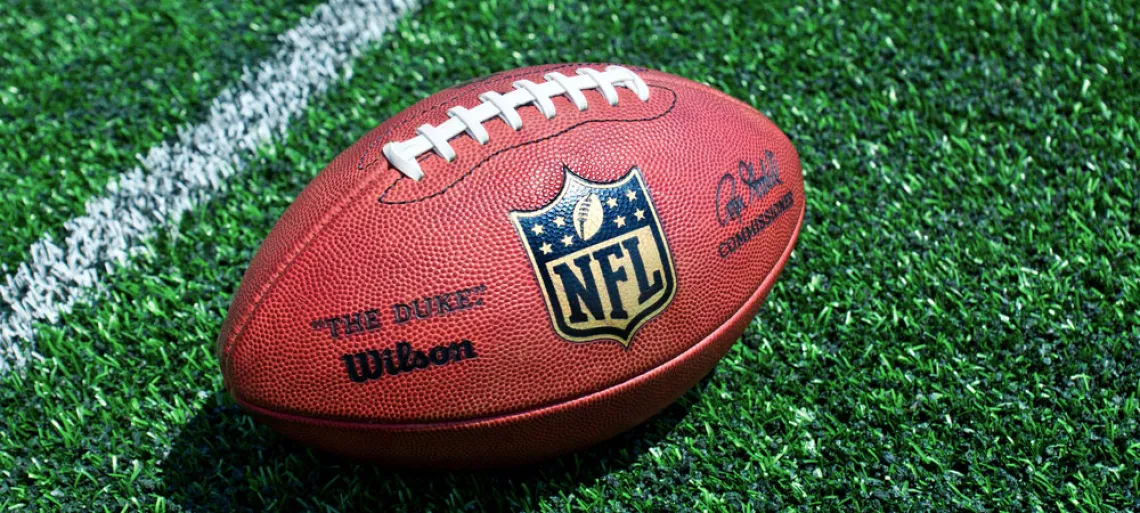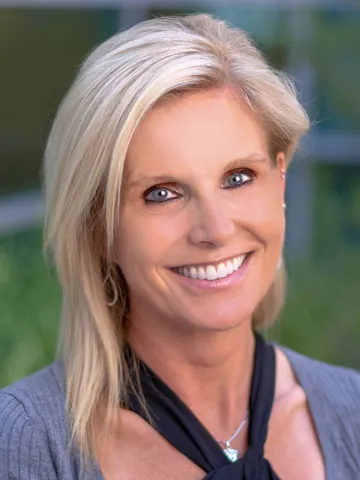Eller Branding Expert Says NFL's Image Will Recover

A bad-news NFL season that began with a shocking elevator video and is ending with "Deflategate" might make you wonder if the league is the damage-control center of the universe.

Hope Schau, Eller Professor of Marketing.
To which Hope Schau says: Don’t worry about the NFL. It has survived scandals in the past, and it’s going to take much more than this season’s high-profile troubles to sink the ship.
"Every brand is a work in progress," says Schau, an expert on branding and an associate professor of marketing in the University of Arizona’s Eller College of Management.
"The NFL hasn’t lost the essence of what it is. There was a time when (its players) might have been more representative of ideal citizenship. But there are generations now where that may not be as important. At the end of the day, people are still going to watch football. There will be fans, and the game will still represent America."
NFL Commissioner Roger Goodell’s handling of the controversy involving Ray Rice, formerly a star player for the Baltimore Ravens, is a cloud that still hangs over the league ahead of its marquee event, Sunday's Super Bowl in Glendale, Arizona. Rice was arrested and indicted for aggravated assault last March 24 after his then-fiancee (and now wife) Janay Palmer was punched in the face in an elevator in Atlantic City, New Jersey. The blow rendered Palmer unconscious.
Rice initially was suspended by Goodell for two 2014 games, then his contract was terminated by the Ravens on Sept. 8 after additional, graphic video of the couple's encounter had been posted by a celebrity news website. The domestic-violence issue has stayed in the forefront through the NFL’s participation in "No More" public-service announcements, featuring current and former players going on camera to repudiate domestic violence. The league’s domestic-violence controversy was named the top sports story of 2014 by the Associated Press.
Schau says the NFL made at least two mistakes in its handling of the Rice affair. It was too slow to act in the wake of the incident, she says, and it hasn’t helped itself by keeping the focus on a negative issue via No More.
"It was hard to see that (elevator video) and not form an opinion," Schau says. "Getting out in front of the message and taking action early is always the better option…. Indecision doesn’t play well with an audience that saw what it saw. Imagining it would go away is naïve. Be prepared for the (social media) sharing and get out in front of it."
No More, a 5-year-old coalition of various groups against domestic violence and sexual assault, didn’t gain traction until the incident with Rice and one involving Minnesota Vikings star Adrian Peterson put domestic violence in the national headlines. But the PSA campaign isn’t allowing the league to move forward, Schau says, by the way it inadvertently prompts the public to flash back to the elevator tape, giving amplification to the wrong thing.
"I would hope that our standard is that we treat people well, not just that we don’t treat them badly," Schau says of the TV spots. "That’s a low bar to clear. The NFL could be highlighting the good things it is doing in outreach. It could show support of women’s sports, for example. I know they’re doing some of that, so why aren’t we hearing about it?"
Schau says companies and celebrities consistently manage to survive damage to their brand, citing examples such as Tylenol (a tampering scare in 1982), the TV show "Two and a Half Men" (actor Charlie Sheen’s notorious problems) and Rob Lowe (a bad-boy actor turned popular pitchman).
"There are a million and one ways to recover," she says.
Threats to the safety of pro football (concussions) and its integrity (the underinflation of game-day footballs, signaling a larger issue of rules-breaking) are potentially more damaging to the game than social issues are, Schau says.
In any case, it’s wise for the NFL to realize that social media have created a whole new landscape for messaging.
"Technology allows 24-7 access, and everyone can forward and comment," Schau says. "I use the example of a rock concert. Most people never know that, before going on, the band might have had a fight. But social media bring backstage to center stage. There’s a transparency that’s positive, but some of it can’t be edited. We now know what’s going on to an unprecedented degree.
"With social media, you can craft your self-presentation. And yet, something private can become public rapidly. (The Rice video) is a moment that no one anticipated would be seen."
Top photo of official ball of the NFL courtesy Shutterstock.

